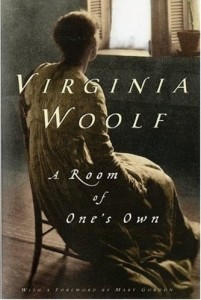Lily Hoang
https://literature.ucsd.edu/people/faculty/lhoang.html
Lily Hoang has published some books and won some awards. She is Director of the MFA in Writing at UC San Diego.
https://literature.ucsd.edu/people/faculty/lhoang.html
Lily Hoang has published some books and won some awards. She is Director of the MFA in Writing at UC San Diego.
I’m reading Clarice Lispector’s The Hour of the Star. Lispector is a powerhouse writer, no question about it. Her sentences are like the rapture, like the world is ending all around me and there’s only this, her words, and I want to grab them by the fistful and hide them in my shirt pocket for safekeeping, even though doom and thunderbolts are all around me. BUT, but, even as I read, I’m skeptical because the book is metafiction, and I’ve found myself increasingly bored with metafiction.
If you’re near or around Toronto tonight, check out this event. I’d be there, if I had a magic transporter!
 So apparently, Canada is such a Socialist paradise that they have a hospital devoted *just* for artists. I heard about this last night. This afternoon, rehashing the previous evening’s conversation in the most brutal way, I thought maybe I’d made it up, that maybe there wasn’t really a hospital just for artists, but in fact, it’s true.
So apparently, Canada is such a Socialist paradise that they have a hospital devoted *just* for artists. I heard about this last night. This afternoon, rehashing the previous evening’s conversation in the most brutal way, I thought maybe I’d made it up, that maybe there wasn’t really a hospital just for artists, but in fact, it’s true.
Last night, as a friend was telling me about this artist hospital, I laughed, thinking about all the maladies HTML Giant & crew would walk in complaining about (oh my wrist hurts from typing, from masturbating too much, etc), the “special” treatment that artists need over and above “normal” people. I mean, in many ways, it makes sense. Musicians have very different bodily needs than say, accountants. Sculptors are different from mechanics, maybe. But where does this end? Should every occupation have its own special hospital?
This guy said in this book: My tastes in reading lately have been way more realistic, because most experimental stuff is hellaciously unfun to read.
Discuss.
Here, you’ll find a panel discussion with some NBCC people on the “next ten years” of book publishing. Whereas the title of the panel misleads (you’d think the panelists would talk about book publishing but they end up talking more about being book reviewers/critics), it ends up being a fairly provocative discussion, one that both excited and angered me.
Some highlights:
1. Mark Athitakis begins the panel quoting DFW’s new book. The web is a seemingly egalitarian space. It offers “everyone” a chance to publish and review. This model engenders a “grassroots” or bottom-up opportunity, for the “people” to decide what is “good” and ought to be read, as opposed to our top-down model now, with a handful of publishers dictating what gets mass distribution. DFW argues, however, that the web ultimately will offer us too many opportunities, and that before long, we’ll be asking for “gate-keepers” to tell us what is good and where to find it.
2. Colette Bancroft, books editor of the St. Petersburg Times, extends the DFW conversation by arguing that the web enables EVERYONE to be a critic and the heyday of the gate-keeper is slowly going away. I like this idea, though I’m not sure I buy it.
3. Scott McLemee of Inside Higher Ed gives a shout out to the “youngins.” Apparently, he knows some young people who read, unlike most of the other panelists there. In particular, he mentions The New Inquiry and Rumpus, which I don’t need to link because everyone here probably reads it.
This past week, there have been several blogs (plus the mention in the New Yorker) about Tao Lin and the reviews lodged for and against him. To be fair, I haven’t read much of Tao’s work, but I am entrenched in the pure spectacle of “Tao Lin.” Mostly out of boredom but partly because I can’t get away from it, even if I wanted to.
 But consider this, in his Author’s Preface, Alexander Pope argues, “Poetry and criticism [are] by no means the universal concern of the world, but only the affair of idle men who write in their closets, and of idle men who read there.” So I’m back to the question of boredom. Why do we care who says what about Tao? And here, just look back at the comment streams about Tao. People seem to do more than simply “care.” They’re invested! I barely have time to care about the reviews written about my friends, much less any other contemporary. I have no desire to be an idle man writing in my closet, nor an idle man reading there.
But consider this, in his Author’s Preface, Alexander Pope argues, “Poetry and criticism [are] by no means the universal concern of the world, but only the affair of idle men who write in their closets, and of idle men who read there.” So I’m back to the question of boredom. Why do we care who says what about Tao? And here, just look back at the comment streams about Tao. People seem to do more than simply “care.” They’re invested! I barely have time to care about the reviews written about my friends, much less any other contemporary. I have no desire to be an idle man writing in my closet, nor an idle man reading there.
It doesn’t matter much to me whether or not Tao (or any other writer, for that matter) cultivates this particular brand of hype. My concern has to do with the unabashed responses that indicate how very right Pope is. Even this post reinforces Pope’s argument that I’m simply an idle man—or woman in this case—reading in a closet.
In her essay “Points of Pressure,” Caroline Bergvall writes:
For many bicultural artists and writers, the processes of identity and of writing acquisition go hand in hand with aspects of cultural belonging and the way this articulates their lived body and speaking voice. When the writer’s cultural and social body accommodates two or three languages and/or cultures, their inscriptive narratives and poetics are necessarily at a break from a monolingual textual body-type and a nationally defined writing culture. It is often accompanied by a propensity towards open-forms and mixed genres, remains dubious and questioning of defining terms, can be resistant of exile or immigrant narratives and their inward longing for a traditionalist past where identities are firmly locked in place, rather than in play.
 In 1929, Virginia Woolf rallied that women need a room of their own, not just to be a writer but to be free. Free here is used loosely. Freedom has more to do with creativity and empowerment, which may ultimately be what “freedom” means. I just want to differentiate between “freedom” in the constitutive or religious or new age definitions and what I mean.
In 1929, Virginia Woolf rallied that women need a room of their own, not just to be a writer but to be free. Free here is used loosely. Freedom has more to do with creativity and empowerment, which may ultimately be what “freedom” means. I just want to differentiate between “freedom” in the constitutive or religious or new age definitions and what I mean.
I first read Woolf when I was eighteen or nineteen. In the most cliché ways, she totally rocked my world. Back then, I was some suffering, struggling poet—and a very bad poet too! Since then, I make it a point to teach her to my first years, hoping she’d inspire them to think critically, in the same ways she’s inspired me. And she did inspire me: I believed her. I believed I needed a room of my own to write, to be a good writer.
But driving through the Cambodian countryside—countryside here being a very poor translation. Here’s the problem with language, yeah? I say countryside to many Westerners,  and they (WE) think of pastoral cowfields or quaint little bed & breakfasts—I’m reminded of Woolf and her call for a room. See: the houses in Cambodia sit on stilts (which is utterly irrelevant to my point, more of a cool observation) and they don’t have any doors, or rather, if they do have doors, they’re never closed. Driving by, anyone can see straight through the houses, which are more like shacks. They’re small, no bigger than my two bedroom apartment, and there aren’t even walls to differentiate personal, individualized space.
and they (WE) think of pastoral cowfields or quaint little bed & breakfasts—I’m reminded of Woolf and her call for a room. See: the houses in Cambodia sit on stilts (which is utterly irrelevant to my point, more of a cool observation) and they don’t have any doors, or rather, if they do have doors, they’re never closed. Driving by, anyone can see straight through the houses, which are more like shacks. They’re small, no bigger than my two bedroom apartment, and there aren’t even walls to differentiate personal, individualized space.